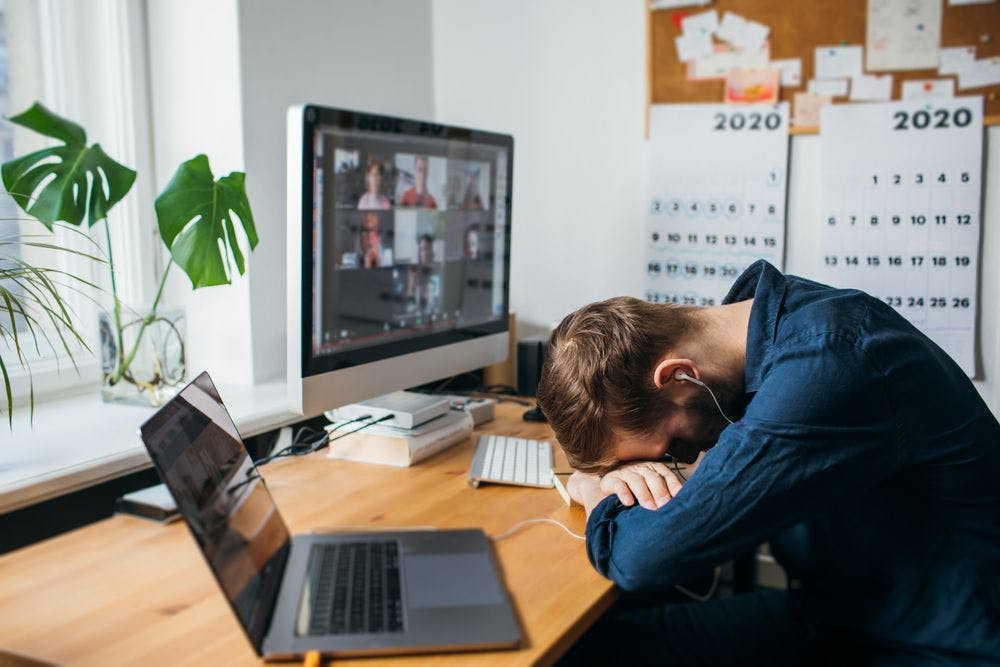
Do you find that virtual meetings take a toll on your energy levels? You’re not alone, and researchers think they know why
Over the past year, it’s safe to say that many of us have been spending a lot more time in front of screens, taking part in virtual meetings and dropping in and out of video calls.
Of course, it’s fantastic that we’re able to stay in touch with each other while staying safe at home, but if you find yourself experiencing ‘Zoom fatigue’ – that drained feeling after finishing a video call – you wouldn’t be alone, and there’s science behind this modern phenomenon.
Looking into ‘Zoom fatigue’, researchers from Stanford University believe there are four key reasons why video conferences are so tiring, publishing their findings in the journal Technology, Mind, Behaviour. Those four qualities are:
1. Excessive close-up eye contact
Think about it, in a standard face-to-face meeting, everyone isn’t always staring at everyone else – they might be taking notes, looking around the room, or having a drink. But this isn’t the case in a virtual meeting, where everyone is staring at each other constantly. Researchers believe that this leads to hyper-arousal and stress, similar to that experienced by public speakers.
2. Intrusions on personal space
According to research from cultural anthropologist Edward Hall, each person’s intimate space is a radius of about 60cm. Interactions that we have within this space are usually for partners, family, and close friends. Think about how close you are to your monitor – are the faces on your screen falling within this radius? This is an unsettling and draining experience that may be happening unconsciously.
3. Cognitive overload
A previous study, also by Stanford University, found that being on a video conference, rather than an audio-only call, had an effect on cognitive processing – with test subjects taking part in tasks performing better when on audio-only, compared to those on video. It was concluded that this was due to ‘increased cognitive load’ when on video. And sustaining that throughout the duration of a meeting takes its toll.
4. Constantly seeing your own reflection
Researchers suggest that part of the fatigue may come from intensively watching your own reflection over a long period of time, which could lead to being more self-critical than you are normally. However, they note that this is an area that needs more research. That said, if this is something you think affects you, see whether it's possible to hide yourself while on a call.
If these points sound familiar to you, are there any ways you might be able to reassess your set-up to try to tackle some of these pitfalls? For example, moving your screen further away from you and taking audio-only breaks, if you can.
If that’s not possible, think about what other self-care activities you can incorporate into your routine. Staying hydrated, planning a relaxing and reinvigorating evening, and practising mindfulness can all be little ways of tackling fatigue and taking back control.
Connect with a life coach using lifecoach-directory.org.uk

